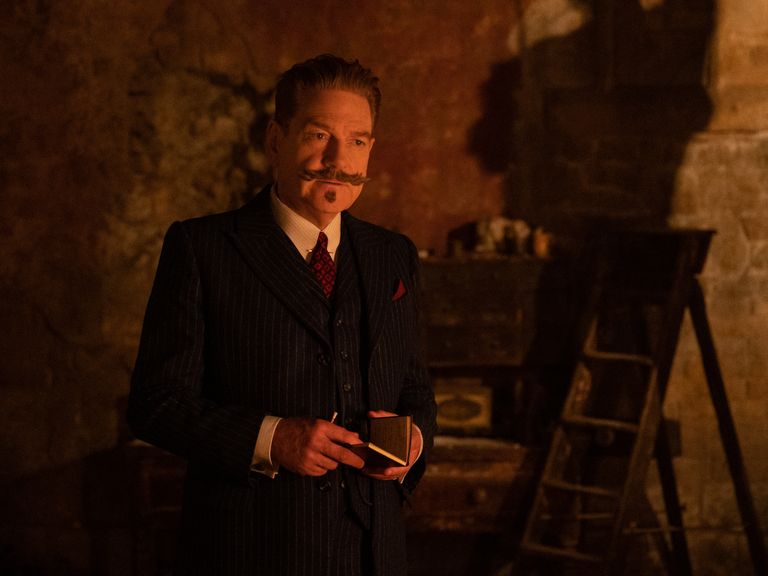Did you know Hercule Poirot is from Spa in Belgium? Or that Spa’s abundance of mineral springs gives its name to what we now know as, uh, spas? Those are just two facts I learnt from the internet on the way back from viewing the latest Poirot flick, A Haunting in Venice. Great news for the Agatha Christie estate (I’m sure they need my attention!) and Spa’s tourism board (looks alright on Google images!). And yet the real winner of the film, out on 15 September, is Kenneth Branagh, now on his third outing as the fussy detective and embracing some weirder instincts.
A Haunting in Venice is superior in almost every way to the previous, bland instalments in the franchise, 2017’s Murder on the Orient Express and 2022’s cursed Death on the Nile (all three have also been directed by Branagh). Based on the 1969 novel Hallowe’en Party, the third entry wisely up sticks to the watery Italian city and swaps an English country house (boring) for a crumbling palazzo (beautiful and scary). Poirot is brought out of retirement by American detective author Ariadne (played by Tina Fey), who is obsessed with a mystic (Michelle Yeoh), recently hired by tragic, trembling Rowena Drake (Kelly Reilly), whose daughter died by apparent suicide the year before. You could guess what happens in about five minutes (and with a zippy runtime of 1 hour 40 minutes, it feels like that anyway) but it is enjoyably soapy.
You are here for the mood. A gorgeously orchestrated Halloween party, complete with shadow puppetry exposition, kicks off the action. A supporting cast, including Jamie Dornan and Camille Cottin, add flair. The house, with its soundproofed music room and hidden doors, is an effectively gothic background (it does more work than most of the writing). Brannagh’s Dutch angles, which I suspect some will find queasier than the one-liners, imbue the space with unease. Gone is the distracting CGI from the first two films, and in is a palpable, old-school anxiety (the film takes place two years after WWII). Poirot is also going through an identity crisis, unrelated to murder: he’s a little jaded (okay, that one might be because of the murder) and everyone seems to want a piece of him. That is linked to the supernatural setting – does Poirot believe in a life beyond himself? (and really, with access to gorgeous buildings and round-the-clock leisure time, why would he want to?) – but the film does not make such existentialism too onerous.
What a strange, undying invention Poirot is. This Belgian detective concocted by a very British writer has been solving mysteries since his first appearance in 1920 and has been played by a staggering range of actors including Orson Welles, John Malkovich, David Suchet (he’s the one you’re thinking of). At a London screening, A Haunting in Venice was introduced by Christie’s great, great grandson who is also a producer for the series. He stressed two things: the aforementioned tone change and how this film has gone off-script. After an initial box office success, followed by a stumble, taking such artistic liberties seems wise. And if Branagh is at the forefront of this venture, twirling a comically twisty moustache, so be it: worse crimes have been committed in the name of franchise-building.
‘A Haunting in Venice’ is in cinemas 15 September
Henry Wong is a senior culture writer at Esquire, working across digital and print. He covers film, television, books, and art for the magazine, and also writes profiles.













